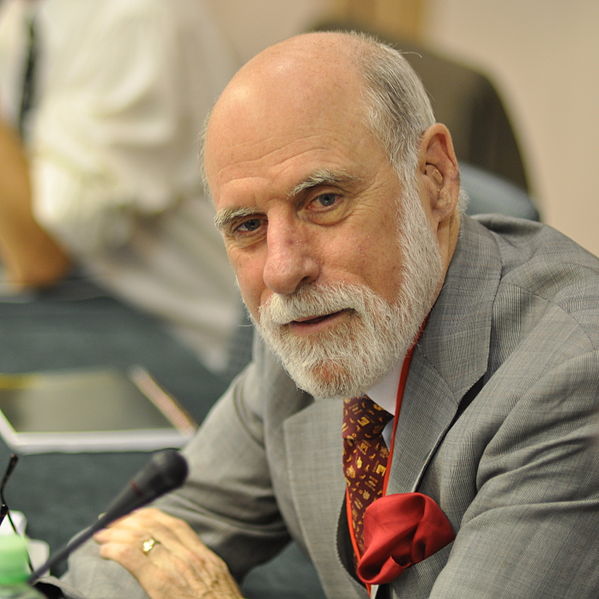10.31.13
Posted in Deception, Google at 8:34 am by Dr. Roy Schestowitz
Famous staff, lowered credibility

By Вени Марковски
Summary: US-based Internet giants which openly deceive the public when it comes to privacy should not be trusted; without freedom-respecting and secure hosting there will always be surveillance
TECHRIGHTS has been anything but a Google critic. However, when there is pretence and deception we should be honest and balanced enough to expand our scope and deal with GNU/Linux backers critically where they deserve it.
 This Halloween it is reported that there is exceptionally high demand for masks bearing Edward Snowden’s face. He sure helped change the way many of us view the world, and not just the digital world (although most of the documents he leaked address digital means of surveillance). NSA access to Microsoft stuff (all of people’s data at Microsoft) is almost automatically implied, as Microsoft was the first company in the PRISM program and perhaps its main facilitator. Snowden showed documents that support these facts. There is no room for spin and no need for speculation; the raw material also eliminates bias that could be attributed to some reporters and their trustworthiness. Putting Microsoft aside (it’s the biggest violator of privacy), Google and Yahoo! are in the news right now [1,2] because it is shown that the NSA secretly accessed Yahoo and Google datacentres. That’s useful to know. This means that there is yet another reason never to host any sensitive data in the United States and by extension it would be unwise to work with north American Internet companies. They cannot guarantee privacy at all. Amazon, a CIA partner, even makes it very explicit in its terms of agreement.
This Halloween it is reported that there is exceptionally high demand for masks bearing Edward Snowden’s face. He sure helped change the way many of us view the world, and not just the digital world (although most of the documents he leaked address digital means of surveillance). NSA access to Microsoft stuff (all of people’s data at Microsoft) is almost automatically implied, as Microsoft was the first company in the PRISM program and perhaps its main facilitator. Snowden showed documents that support these facts. There is no room for spin and no need for speculation; the raw material also eliminates bias that could be attributed to some reporters and their trustworthiness. Putting Microsoft aside (it’s the biggest violator of privacy), Google and Yahoo! are in the news right now [1,2] because it is shown that the NSA secretly accessed Yahoo and Google datacentres. That’s useful to know. This means that there is yet another reason never to host any sensitive data in the United States and by extension it would be unwise to work with north American Internet companies. They cannot guarantee privacy at all. Amazon, a CIA partner, even makes it very explicit in its terms of agreement.
“NSA access to Microsoft stuff (all of people’s data at Microsoft) is almost automatically implied, as Microsoft was the first company in the PRISM program and perhaps its main facilitator.”The NSA is not protecting the United States. It does the very opposite. It is destroying the reputation of many strong companies with talented people (hired from all over the world). The NSA is trying to save its own reputation by gagging critics [3], but the crimes speak for themselves and the Swedish Pirate Party accuses the NSA is treating Merkel (head of Europe’s largest economy) like she is a terrorist or a paedophile [4]. Well, here in Manchester some acquaintances of mine are organising a CryptoParty [5], helping people to avoid snooping from the NSA and its British offshoots (at least two are known) which spy on Europe.
It’s hard to escape surveillance when giants like Google and Yahoo won’t tell the truth. They give a false sense of security/privacy. It really boils down to trust and this is why Techrights is hosted by CoPilotCo, which is managed by a guy who is very serious about security. He guards the hardware. He even does Bitcoin Secure Hosting. █
Related/contextual items from the news:
-
-
The National Security Agency has secretly broken into the main communications links that connect Yahoo and Google data centers around the world, according to documents obtained from former NSA contractor Edward Snowden and interviews with knowledgeable officials.
By tapping those links, the agency has positioned itself to collect at will from among hundreds of millions of user accounts, many of them belonging to Americans. The NSA does not keep everything it collects, but it keeps a lot.
-
-
-
Permalink
 Send this to a friend
Send this to a friend
Posted in Site News at 8:21 am by Dr. Roy Schestowitz

Author: Ronny Siegel
Summary: Techrights is moving to Drupal now that WordPress introduces back doors as part of the core package
Techrights was always a WordPress-based Web site. I have been with the WordPress for nearly a decade and I met its co-founder (Mike Little) for coffee about 8 years ago, back when I was more actively involved in the development side. That was around the time this Web site started. It used WordPress 2.0 for quite a few years (and since the very start) because this version was a long-term support release (as required for inclusion in Debian GNU/Linux software respositories). Contrary to some smears and lies, Techrights never got cracked in any way whatsoever. It’s build very securely and only DDOS attacks took it down. Around 2009 there was an upgrade which resulted in very little change to the site’s appearance as consistency was a priority. In response to DDOS attacks it also added a cache proxy and more CPU cores. To the outsider (visitor), this site today looks very similar to how it looked 7 years ago. But this aging look makes it less suitable for its breadth. In fact, a blogging platform was outgrown when we added a Wiki (later in the same year) and now we deal with issues of organisational nature. WordPress has just had a release with automatic updates [1,2] (security risk in itself, but it’s toggled off by default, for now) and there is already a bugfix release [3], which in many cases will get installed automatically even though it has no security-related fixes. This can be risky if the update mechanism gets hijacked (as has happened before to other companies). Governments can compel companies to misuse this mechanism or secretly take over it* in order to install Trojan horses in the background (targeting particular sites). In any event, automatic updates come with risks that are backdoor-like; Drupal, a European project, does not have this issue, at least not yet. The front page of this site is now Drupal-powered and it is a sign of things to come. The plan is — one way or another — to make Drupal the primary component of the site without disrupting or even changing the old pages. The transition can be slow, but we’re determined to make it happen. █
____
* The NSA is good at covert action and Automattic would be easy pickings for it, not just because it’s US-based (packets can be sniffed and decrypted for passwords). While I have enormous trust and respect for Matt Mullenweg, who is a charming man of integrity, I very much doubt he can challenge his government technically and legally. An intervention-free remote update mechanism is a trade-off between security and so-called ‘national security’ (the oppressors’ power). Remember that WordPress got backdoored once before (core — not plugins — in version 2.1.1). Linux too was a victim, a few years earlier (it was developed and hosted in the United States at the time). The very existence of backdoor-like mechanism is begging to be abused. Experience teaches that it does get abused, and far more often than most of us choose to believe. The more subversive sites become, the bigger a target they become for authorities’ ‘legalised’ cracking teams.
Related/contextual items from the news:
-
The WordPress team has announced the release of version 3.7 which makes WordPress more secure. The release is named “Basie” in honor of Count Basie.
-
-
Permalink
 Send this to a friend
Send this to a friend
Posted in GNU/Linux, Servers at 7:13 am by Dr. Roy Schestowitz

Photo by Avinash Kaushik (Googleplex)
Summary: Addressing claims that GNU/Linux and Free software in general are neither efficient nor suitable for old hardware
THERE is an ongoing online debate about GNU/Linux as a remedy/recovery plan for old PCs; those who deem it unfit for old computers (no link, intentionally, but there is a rebuttal in [1]) are totally ignoring the many distributions which are specifically created and optimised so as to help revive old PCs. Some, like the Raspberry Pi, are doing exceptionally well [2-6] with very little. There is no need for massive computers to perform simple tasks. A lot of people use computers for very light activity (like Web surfing) with just one active application actually running. It’s a trend. Even Intel is now surrendering to the trend [7], embracing its rival out of desperation perhaps (Atom was a big failure). Microsoft and Apple, two companies that rely on x86 and inefficient machines (Apple is routinely shamed by Greenpeace for being one of the dirtiest companies in the planet alongside Microsoft [1, 2]), are arguing over who’s responsible for draining batteries so quickly [8] and we are constantly reminded of the urgency of energy efficiency [9] because solutions/alternatives do exist these days [10,11].
“Cooperation reduces other sorts of waste, too.”When it comes to natural resources, there is a limit. They are all finite (some less than others, e.g. sun rays and winds), so we should stop assuming infinite expansion of everything (including Moore’s/Intel’s silly ‘law’ [12], which assumes we can magically redefine or bend atoms’ size). We are in this energy-wasting mess right now because greedy oil tycoons and economists don't seem to grasp scarcity, especially in a lifetime’s worth/timespan.
For those who are “green”-conscious, Free software should become a thing to embrace and to spread. Cooperation reduces other sorts of waste, too. █
Related/contextual items from the news:
-
Even on old hardware, GNU/Linux idles like every other desktop OS since i386. Really. PCs are much faster than humans and sit in a looping state checking for stuff to do until the human makes another click some milliseconds apart. In a millisecond, an old PC with a single or dual-core CPU can do millions of operations. It’s not that hard to do IT and keep ahead of humans if you are that fast. Further, modern hard drives run ~100-200 MB/s and the old ones slog at 40 MB/s, not that different if you’ve just clicked on an icon or link. A lot of what we do is out on the Internet where a click takes a few tenths of a second to get anything done and many transactions take ~1s.
-
This week our friends at OpenERP have launched their own crowdfunding campaign for a retail Point of Sale solution, based on our favourite little computer – the Raspberry Pi, and some other bits of hardware.
-
It is fair to say that the Raspberry Pi is a success. I love them, you love them, the whole world loves them. It has reminded the rest of the computing world that the UK – and Cambridge especially – has a proud computing heritage.
-
-
It was recently announced that the Raspberry Pi (RPi) has sold 1.75 million units in the 1.5 years they have been available. That is seen by most folks as a screaming success. In contrast, the One Laptop Per Child project (OLPC) has sold about twice as many OLPC units in about 6+ years… yet it is seen by some as a quasi-failure.
-
You might not have noticed that the $35 computer, Raspberry Pi has exceeded 1 million units shipped. Further, they have production volumes cranked up to the point where you can order more than one unit.
-
“It’s huge. Imagine ARM’s most powerful and technologically advanced 64-bits processor built on Intel’s leading-edge fabs. A duo that will be hard to beat,” explains Nathan Brookwood, principal analyst at Insight 64.
-
Is it true? Yes. And also no. What PCWorld’s team of mythbusters discovered was that yes, installing Windows on a MacBook Air exhausted its battery far, far quicker than the Mac OS ever could. But when asked to explain themselves, Microsoft executives explained that Apple’s engineers simply weren’t as dedicated as the Windows world.
-
-
The primary complaint against solar power—that it, you know, requires the sun—is perfectly valid. But Arizona’s new Solana Generating Station, the largest capacity solar thermal plant on the face of the Earth, has just provided a $1.4 billion counterpoint. Thanks to its massive molten salt reserves, this plant keeps producing power even after lights out.
-
Vanderbilt University researchers say they have come up with a way to store electricity on a silicon-based supercapacitor that would let mobile phones recharge in seconds and let them continue to operate for weeks without recharging.
The researchers said in a paper that instead of storing energy in chemical reactions the way batteries do, silicon supercapacitors store electricity by assembling ions on the surface of a porous material. As a result, they tend to charge and discharge in minutes, instead of hours, and operate for a few million cycles, instead of a few thousand cycles like batteries, the researchers stated.
-
“The tech industry has been lazy and has depended on Moore’s Law, but once it’s gone they’re going to have to come up with new and different ways to make their products better and faster,” suggested blogger Mike Stone. “I’m sorry to say that I don’t know how they’re going to do that at this point, but I have all the confidence in the world that they will.”
Permalink
 Send this to a friend
Send this to a friend
Posted in Action at 5:57 am by Dr. Roy Schestowitz

Joe Lieberman, Neoliberalist
Summary: Why the press — a free and independent press for that matter — is so vital in exposing corrupt and/or abusive figures of authority
HERE in the UK we are known for prosperity but also for poverty. We have some of the worst economic disparity, by some measures the second worst in the West (second to the United States). The problem is being further acknowledged right now [1] by The Guardian, over two years after we had riots, even right here in Manchester. This undeniable economic disparity was definitely among the causes.
“Revolution” is no longer a scary word for some [1], not even former New York Times journalists. This does not mean forceful or violent revolution but an “Invisible Revolution” that’s based and hinged upon exposing corrupt power structures. This “Invisible Revolution” is actually becoming more visible when those in power want to crush it by hounding [1, 2, 3, 4, 5] and spying on journalists (the fourth estate, not to be confused with anti-media propaganda called "Fifth Estate"). I have personally seen — even my relatively short lifetime so far — how the media crushed people in power who had abused their power against powerless citizens who can barely afford a lawyer. Sometimes the media (not corporate media but investigative media) acts a deterrence and silent regulator; people who abuse power or engage in corruption dread the thought of becoming the centre of a attention, embroiled in a scandal in the national or international press; it can destroy their entire career and they know it. This is why we absolutely need to defend the media — the real media, i.e. one that’s not funded by corporations to covertly drive their separate agenda and distract from genuine media.
“We need to name and shame these politicians, which is something that Professor Lessig does very well these days.”The New York Times has a new article (behind paywall or requirement of surveillance by real ID) [3] which shows how politicians get bribed by banks to vote for banks’ interests. We need to name and shame these politicians, which is something that Professor Lessig does very well these days. What we have right now (more so in the US than in the UK) is “neoliberalism” [4], which puts all the political power in the hands of corporations (and those who run them, the plutocrats).
One way to fight all this is to deprive the banks — the facilitators of disparity and the people who bribe politicians — of their power. It can really be accomplished by choosing alternative bartering methods that can prove to be rather rewarding [5] (the banks and their politicians are trying to ban those currencies using new laws, as expected). We need to support sites like Wikileaks using alternatives currencies because, as we came to discover 3 years ago, an illegal financial embargo can be used against them given enough pressure from politicians like Joe Lieberman (who are of course working with the banks, using them for sanctions/vendetta). Centralisation of power and money is something which needs to be dodged. Alternative currencies, alternative media, etc. are becoming ever more vital. We also need an alternative to the Internet, an NSA-free alternative. █
Related/contextual items from the news:
-
Children’s Society finds more than half of UK’s 3m poor children complain of cold and 76% often worry about family finances
-
By the time ruling elites are openly defied, there has already been a nearly total loss of faith in the ideas—in our case free market capitalism and globalization—that sustain the structures of the ruling elites. And once enough people get it, a process that can take years, “the slow, quiet, and peaceful social evolution becomes quick, militant, and violent,” as Berkman wrote. “Evolution becomes revolution.”
[...]
Ruling elites, once the ideas that justify their existence are dead, resort to force.
-
“”House aides, when asked why Democrats would vote for this [sell out to Wall Street] even though the Obama administration opposes it, offered a political explanation. Republicans have enough votes to pass it themselves, so vulnerable House Democrats might as well join them, and collect industry money for their campaigns.””
-
-
Bought in 2009, currency’s rise in value saw small investment turn into enough to buy an apartment in a wealthy area of Oslo
Permalink
 Send this to a friend
Send this to a friend
Posted in GNU/Linux, Ubuntu at 5:14 am by Dr. Roy Schestowitz

Photo from markshuttleworth.com
Summary: A “Big Brother Award” is being awarded to Mark Shuttleworth, who continues to ignore criticism from a lot of Ubuntu users and public interest groups
A few days ago Muktware said that Canonical’s and Ubuntu’s Mark Shuttleworth had won Austria’s Big Brother Award [1] for liaising with strong CIA partner Amazon (CIA’s surveillance/data-mining platform is being implemented by Amazon). For those who have not been paying attention, the EFF and FSF both denounced Canonical’s deal with Amazon — a deal which help transmit search terms from local search to Amazon and back (that’s when Amazon knows the identity of the searcher). This behaviour is still enabled by default, even in Ubuntu 13.10 [2], so we know that Canonical actively ignores the problem. Canonical employees are trying to challenge the messenger, or the author of the above article (and failing as evidence points against them). To me, personally, this is just a sign of Canonical’s arrogance. They could really use some more competition on the desktop and they deserve to have stronger competition at this stage. Mark Shuttleworth collectively called critics of this malicious features “trolls” and more recently he labeled (as a joke) those who criticise his other decisions as the “Open Source Tea Party”. That’s just insulting, it is not so funny and above all it is divisive (comparing people you do not agree with to zealous GOP backers). Putting aside new derivatives of Ubuntu [3-5], which mostly eliminate the spyware-like behaviour (including the latest Kubuntu that looks decent), there are options such as these freedom-respecting distributions. █
Related/contextual items from the news:
-
Austria’s Big Brother Awards has picked Ubuntu’s founder Mark Shuttleworth for the coveted Big Brother Award for their online extension to local searches.
Ubuntu has been criticized by Free Software Foundation, Electronic Frontier Foundation and many other concerned organizations for adding a new feature in Ubuntu’s Dash which sends all search queries to Canonical servers located in the UK and the US.
-
-
Ubuntu comes in many flavors, and it’s designed for very different kinds of users. Edubuntu 13.10 is an Ubuntu spin for educators. It comes preloaded with quite a selection of education-related applications including some for science and engineering.
-
-
Permalink
 Send this to a friend
Send this to a friend
10.30.13
Posted in Asia, Europe, FSF at 7:35 am by Dr. Roy Schestowitz

Shinzō Abe (Japanese Prime Minister); Photo from G8 UK Presidency
Summary: Freedom of the press is under attack not just in the West but also in Japan, potentially affecting public scrutiny of corporations as well as governments
The ‘British Snowden’, an MI5 whistleblower who is not able to return to Britain safely (essentially a fugitive now), speaks about the new Snowden Web site [1]. I had the pleasure of speaking with her and she is very widely quoted by the media right now (except in the British media). See, here in the UK there is a war on the media [1, 2, 3] amid an EU blunder which jeopardises Britain’s status in the European Union [2]. It turns out that spying on your allies on behalf of some distant superpower (the United States) is not a good thing to do.
The Japanese Prime Minister and our own Prime Minister David Cameron have quite a lot in common now [3,4], having to deal with that ‘nuisance’ which is The Guardian [5] giving the population this thing called facts. There is a new bombshell about the extremely debt-saddled Japan and the NSA [6] (possibly spying on China and neighbours for distant world powers). In Japan, a former occupier and a vicious empire which slaughtered many people in neighbouring countries, the politicians are trying to gag the press using new laws [7].
“Standing up for Snowden is standing up for the rule of law, justice, and ethics.”Where do we go from here? Well, the Free Software Foundation takes action [8]. We need to defend the disclosure of all this information. Snowden’s leaks revealed (back in August) where trillions of dollars of taxpayers’ money (or national debt to which they’re tied) are going [9] and these leaks also give a very strong challenge to US law, potentially banning some of the NSA’s current actions, which are already against the law anyway [10].
Standing up for Snowden is standing up for the rule of law, justice, and ethics. No more need people be barred from basic information about how public money is spent. Espionage is not “cool” and stabbing continental Europe in the back is not what British citizens would consider a policy that they can support. If the US uses Japan and other small countries (Korea for example) to weaken Indochina while also using the UK (and Sweden among others) to spy on Russia and the European Union, how does one justify unions? Unless we assume that all ethics and good values are derived from US culture we should rethink all these collusions among G8/NATO members.
If laws are being passed to ban freedom of the press (or seriously restrict it), then who is going to cover what Japanese companies and authorities hide from the public ahead of a cancer epidemic [11,12] or after BP barred the press from assessing the real impact of its long-lasting pollution [13]? It’s one thing to bar journalists from publishing what’s being labeled “state secrets”; using the same laws we may find people who publish corporate secrets (evidence of harm or misconduct) criminalised as well. Down the slippery slope we go. █
Related/contextual items from the news:
-
And here’s another aide memoire of the disclosures so far. The impact of these disclosures is global. Edward Snowden is simply the most significant whistleblower in modern history.
-
“While leading politicians of other European countries and officers of the EU itself were keen to express their concern over the latest revelations of US spying on its allies – the President of the European Parliament Martin Schulz said that US secret services were ‘out of control’ – British Prime Minister David Cameron has only said that he thought that the EU statement on the matter was ‘good and sensible’ and that he agreed with it. German Chancellor Angela Merkel said Cameron ‘silently acquiesced” to the statement. At a press conference, Cameron refused to comment about the recent NSA revelations.
“The muted British reaction to what is a truly outrageous scandal, is proof, if indeed any further proof were needed, of what Britain’s main role in the EU is: to act as a Trojan horse to defend and further the interests of the government of the United States of America.”
-
Prime minister alludes to courts and D notices and singles out the Guardian over coverage of Edward Snowden saga
-
-
You don’t need to be talking to a terror suspect to have your communications data analysed by the NSA. The agency is allowed to travel “three hops” from its targets – who could be people who talk to people who talk to people who talk to you. Facebook, where the typical user has 190 friends, shows how three degrees of separation gets you to a network bigger than the population of Colorado. How many people are three “hops” from you?
-
The U.S. National Security Agency sought the Japanese government’s cooperation in 2011 over wiretapping fiber-optic cables carrying phone and Internet data across the Asia-Pacific region, but the request was rejected, sources said Saturday.
-
Japanese Prime Minister Shinzo Abe’s government is planning a state secrets act that critics say could curtail public access to information on a wide range of issues, including tensions with China and the Fukushima nuclear crisis.
-
On Saturday, October 26, 2013, the FSF joined more than three thousand privacy advocates in Washington, DC to call for an end to mass surveillance conducted by the NSA.
-
-
The legislation has support from Republicans and Democrats in both the House and Senate, and from groups like the American Civil Liberties Union and National Rifle Association. But the USA FREEDOM Act’s passage into law remains uncertain.
-
Despite the departure of all his neighbours and the unexplained deaths of some of his stock, Tokue Hosokawa refuses to budge
-
-
Toxicologists ‘predicted with certainty’ that Gulf of Mexico residents and clean-up workers would become severely ill.
Permalink
 Send this to a friend
Send this to a friend
Posted in Apple at 6:57 am by Dr. Roy Schestowitz

Photo from Valery Marchive (LeMagIT)
Summary: The Tim Cook-led company continues to the tradition of Steve Jobs, who openly promoted censorship as portrayed it as a positive thing
The Internet needs free speech and net neutrality, which usually guarantee that one can practice freedom online (anonymity is a bonus). Censorship giant Apple (in particular app censorship [1, 2] that Richard Stallman recently alluded to) is showing its true spot again.
Apple’s well-hyped products are clearly broken [1], as many people report the same issues. How does Apple deal with it? It deletes these reports [2]. How convenient. Make the evidence vanish, eh? That’s a typical Apple response. Well, the person who is popular enough to make it go viral is Larry Lessig, who also considers quitting/eliminating his dependence on Apple [3]. Well played, Apple!
“Apple is probably far worse in that regard than Microsoft and Google.”Internet policy is being written here in Europe (with some public feedback [4] and lobbying from European public interest groups [5]) and perhaps it is time to punish large companies that so shamelessly engage in censorship. Apple is probably far worse in that regard than Microsoft and Google (yes, Google censors also but hardly as much). Apple believes it can get away with it all, but its arrogance is going to alienate its biggest fans. To make matters worse, Apple keeps customers with real issues in the dark; this forms fertile ground for class action lawsuits. █
Related/contextual items from the news:
-
I upgraded my iPhone (“what, you have an iPhone” — ok, you win, sin #1) to iOS 7.0.3. It killed wifi. I went to the Apple discussion site to see what the community had to say about it. Seems there are lots of people who had the same problem. I followed the recommended fixes — including reinstalling the system software and “restoring” from a back (which, in Apple-land, doesn’t really mean restoring, but means giving you the beginning of a restoration, which, with a couple more hours of tinkering, get you back to where you were) — but nothing worked. Wifi came back for an hour. It’s gone again.
-
-
I’ve been experimenting with Prezi, and so we’ll see if that’s an alternative. But I wonder whether there are any serious Free Software developers keen to do a rev of either Open or Libre Office’s slide app? I don’t have the cycles for an extensive commitment to this. But I’d be really keen to participate in a project to think about key improvements to make either really competitive.
-
-
Major organizations from all around the world, defending free speech and freedoms online, signed this open letter initiated by La Quadrature du Net. It encourages for a swift adoption, in Brazil, of an uncompromising “Marco Civil de Internet” that would truly guarantee freedoms online. The vote is scheduled on Tuesday. (Your organization can still sign the letter, after its publication, by sending an email to signature (AT) laquadrature.net)
Permalink
 Send this to a friend
Send this to a friend
Posted in Action at 6:33 am by Dr. Roy Schestowitz
Summary: An example of how authority in the US deals with people whom it wants to silence
IT IS no secret that political dissent is seen as some kind of terrorism now (often referred to as “domestic”), but there are no formal laws against such activities. After all, democracy is designed to facilitate and encourage political dissent; to crush political dissent would be an overt act of crushing democracy.
All sorts of methods — ranging from intimidation to punishment (e.g. forbidding access to one’s own children, deporting, suspension from a job) — are being used to weaken (if not to further radicalise) people who commit the act of political dissent. By political dissent we refer not to choosing one political party over another (especially when both parties promote more or less the same policies which favour the rich and the powerful). By political dissent we refer to what the rich and the powerful perceive as unruly conduct — something which jeopardises one type of authority (usually theirs).
“By political dissent we refer to what the rich and the powerful perceive as unruly conduct — something which jeopardises one type of authority (usually theirs).”It has been interesting to read the story of Rasmieh Odeh [1]. She is apparently being silenced, intimidated, and potentially jailed for something which was dug in from about a decade ago (AP tries to label her “terrorist” and a lot of the corporate press does the same). Why the sudden fishing? Well, putting aside work for women’s rights in the Arab world (which according to [2-4] from the news is a truly important cause) she was also promoting the Palestinian cause, which Facebook likes to censor (the US as a whole is exceptionally sensitive to this subject). Of course, the US has other enemies whose political dissent got them a file (dossier) in the CIA, as revealed earlier this year. That would be another supporter of the Palestinian cause, Noam Chomsky, who ‘dares’ to criticise other US policies, even this week [5].
The civil discourse and the remnant of democracy which we have left very much defends on our ability to defend political dissent. If we let our dogma win and we start labeling opposing views as “trolls” or “terrorists” (trying to get them in trouble), then we lose democracy as well as civility. We let brutes take charge of what’s a “permissible” point of view. Odeh is not being punished for what she was already punished for; she faces a sort of exile, using bureaucracy as a tool. █
Related/contextual items from the news:
-
A Palestinian woman and well-respected organizer in Chicago has been charged with lying to immigration authorities about her background when she applied for citizenship in the United States. If convicted, she faces the possibility of being imprisoned for up to ten years and being deported.
Rasmieh Odeh, who is sixty-six years-old, was arrested by Department of Homeland Security agents during the morning of October 22. She was brought before US Magistrate Judge Mason. Mason released her on $15,000 cash bond. She was ordered to appear in federal court by November 1 in Detroit, where she first lived.
[...]
“We have been aware that the US Attorney in Chicago has not dropped the case against the 23 antiwar activists,” Iosbaker told Firedoglake. “This has been confirmed, reconfirmed and reconfirmed for us throughout the three years since we were subpoenaed and refused to appear before the grand jury.”
“Here is a woman, a longtime activist in the Palestinian community, who has been living in the United States for twenty years. She’s been a model citizen contributing and serving her community. And, suddenly, ten years after she received citizenship, they scrutinize her,” Iosbaker stated. “They never would have looked at her at all had it not been for their investigation of the 23 antiwar activists, including Hatem Abudayyeh, who is her co-worker.”
[...]
Like Iosbaker, he sees a connection between the investigation against him and 22 other activists. Assistant US Attorney Barry Jonas, who has been in charge of the investigation into the activists, was present in the courtroom when Odeh came before the judge.
“She’s a prominent Palestinian organizer and activist,” Abudayyeh declared. “She’s being targeted because she’s a Palestinian. She’s being targeted because she’s an Arab. She’s being targeted because of who she is and what she represents,” which is years of organizing and activism on behalf of social justice and the rights of Palestinians.
-
Saudi activists said more than 60 women claimed to have answered their call on Saturday to get behind the wheel in a rare show of defiance against a ban on female driving in the ultraconservative kingdom.
-
-
A handful of Saudi women have taken to the streets in their cars on a day of collective protest against the ban on female drivers.
-
“The US-Mexican border, like most borders, was established by violence — and its architecture is the architecture of violence.”
Permalink
 Send this to a friend
Send this to a friend
« Previous entries Next Page » Next Page »

 This Halloween it is reported that there is exceptionally high demand for masks bearing Edward Snowden’s face. He sure helped change the way many of us view the world, and not just the digital world (although most of the documents he leaked address digital means of surveillance). NSA access to Microsoft stuff (all of people’s data at Microsoft) is almost automatically implied, as Microsoft was the first company in the PRISM program and perhaps its main facilitator. Snowden showed documents that support these facts. There is no room for spin and no need for speculation; the raw material also eliminates bias that could be attributed to some reporters and their trustworthiness. Putting Microsoft aside (it’s the biggest violator of privacy), Google and Yahoo! are in the news right now [1,2] because it is shown that the NSA secretly accessed Yahoo and Google datacentres. That’s useful to know. This means that there is yet another reason never to host any sensitive data in the United States and by extension it would be unwise to work with north American Internet companies. They cannot guarantee privacy at all. Amazon, a CIA partner, even makes it very explicit in its terms of agreement.
This Halloween it is reported that there is exceptionally high demand for masks bearing Edward Snowden’s face. He sure helped change the way many of us view the world, and not just the digital world (although most of the documents he leaked address digital means of surveillance). NSA access to Microsoft stuff (all of people’s data at Microsoft) is almost automatically implied, as Microsoft was the first company in the PRISM program and perhaps its main facilitator. Snowden showed documents that support these facts. There is no room for spin and no need for speculation; the raw material also eliminates bias that could be attributed to some reporters and their trustworthiness. Putting Microsoft aside (it’s the biggest violator of privacy), Google and Yahoo! are in the news right now [1,2] because it is shown that the NSA secretly accessed Yahoo and Google datacentres. That’s useful to know. This means that there is yet another reason never to host any sensitive data in the United States and by extension it would be unwise to work with north American Internet companies. They cannot guarantee privacy at all. Amazon, a CIA partner, even makes it very explicit in its terms of agreement.






















 Content is available under CC-BY-SA
Content is available under CC-BY-SA